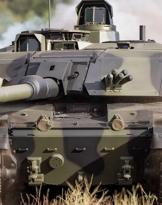ISIS - according to the FBI - would be looking for personnel capable of extrapolating sensitive information from social networks and being able to carry out attacks on American soldiers or their relatives.
The danger is real. Two Canadian soldiers, the 20 and the 22 last October in Quebec and Ontario respectively, were killed in two attacks by alleged followers of the Islamic State. Just in Canada the alleged ISIS affiliates are ninety.
The attacks appear to have been planned online without any kind of contact with ISIS leaders who have already urged Muslims in the United States and Europe to attack the military.
The 25enne Martin Couture-Rouleau, author of the murder of 20 last October, shortly before putting into practice the attack he wrote on his Facebook wall to want to go to Syria through Turkey to fight the jihad. To die in Syria - wrote Couture-Rouleau - would mean going to heaven. He will kill the military Patrice Vincent by ramming him with the car before being killed by the police after a chase.
 Two days later, 32enne Michael Zehaf-Bibeau (photo on the right) opened fire on soldiers guarding the tomb of the Unknown Soldier in Ottawa, killing soldier Nathan Cirillo before he was shot to death while trying to enter Parliament .
Two days later, 32enne Michael Zehaf-Bibeau (photo on the right) opened fire on soldiers guarding the tomb of the Unknown Soldier in Ottawa, killing soldier Nathan Cirillo before he was shot to death while trying to enter Parliament .
In an audio speech published last September, ISIS spokesman Abu Mohammad Al-Adnani (opening photo) urged supporters of the organization to kill Canadians, Americans, Australians and other members of the alliance.
The Pentagon has warned all armed forces. From the social networks the addresses and all the data that can identify the exact location or residence of the owner of the facebook profile must be deleted. The Department of Defense has gone further, drafting a real handbook to stem the risk of being identified. Even the simple return home of military personnel on mission, so harmlessly advertised on social media, has now become a serious risk to their safety. It would be advisable to avoid - they add from the US Defense - also to write their own work or any photo or logo that might suspect a connection with the military.
These attacks - the FBI concludes - could occur without any kind of warning. Meanwhile, the CIA has gone on the counterattack by starting to scour the Facebook pages of the alleged affiliates of terrorist organizations.The Israeli example
A terrorist's Facebook profile revealed the true nature of the attack on Israeli soldiers, which took place on November 7. His messages praising martyrdom published on Facebook showed the same attitude he had previously had from other terrorists who tried to end their lives while carrying out as many murders as possible. Anas Alatrash, a Palestinian terrorist, the 2013 November last year attempted to stab some IDF service soldiers in a checkpoint near Bethlehem. Alatrash, armed with a knife, walked towards the soldiers. The latter ordered him to throw the weapon, but all warnings were in vain. The Israeli soldiers could do nothing but neutralize the threat, opening fire. Alatrash died soon after from his injuries.
The Israeli military opened for fire fearing that Alatrash was wearing an explosive belt, a very common technique in the panorama of suicide attacks (historically known, realistically effective). The practice is always the same. When not driving bomb-bombs, the 'martyrs' are filled with explosives, with a detonator sometimes remotely operated to avoid the last thoughts, and walk towards the target. To achieve the goal, terrorists use boys, women and children, relying on the sensitivity of soldiers. Once "in touch", the terrorists let themselves explode. Sometimes, in addition to explosives, terrorists carry bags full of nails or pieces of metal under the garments: in this way, they become the perfect fragmentation bomb. The metal splinters, scattered in a radius of 360 at very high speed, become lethal at short distances.
Shortly after the attack, Israeli secret services carried out some research. The true intentions of the young man were revealed thanks to his Facebook wall, where the terrorist posted messages that spoke of a "return" to God. His actions are the same as hundreds of extremists who lost their lives trying to break it others and thus obtain "the reward in the afterlife".
Two days before the attack, Alatrash updated his Facebook cover with a well-known passage from the Koran which literally means: "We belong to God and we will return to him." This type of message is traditionally published after the death of the terrorists. that Alatrash posted it two days before he died, he hints at his firm intention to take his own life.
A few hours before the attack, Alatrash always wrote on Facebook: "God, take me with you".
A few hours after the attack, dozens of messages of solidarity for his "heroic gesture" were published on Alatrash's facebook profile.
Franco Iacch












